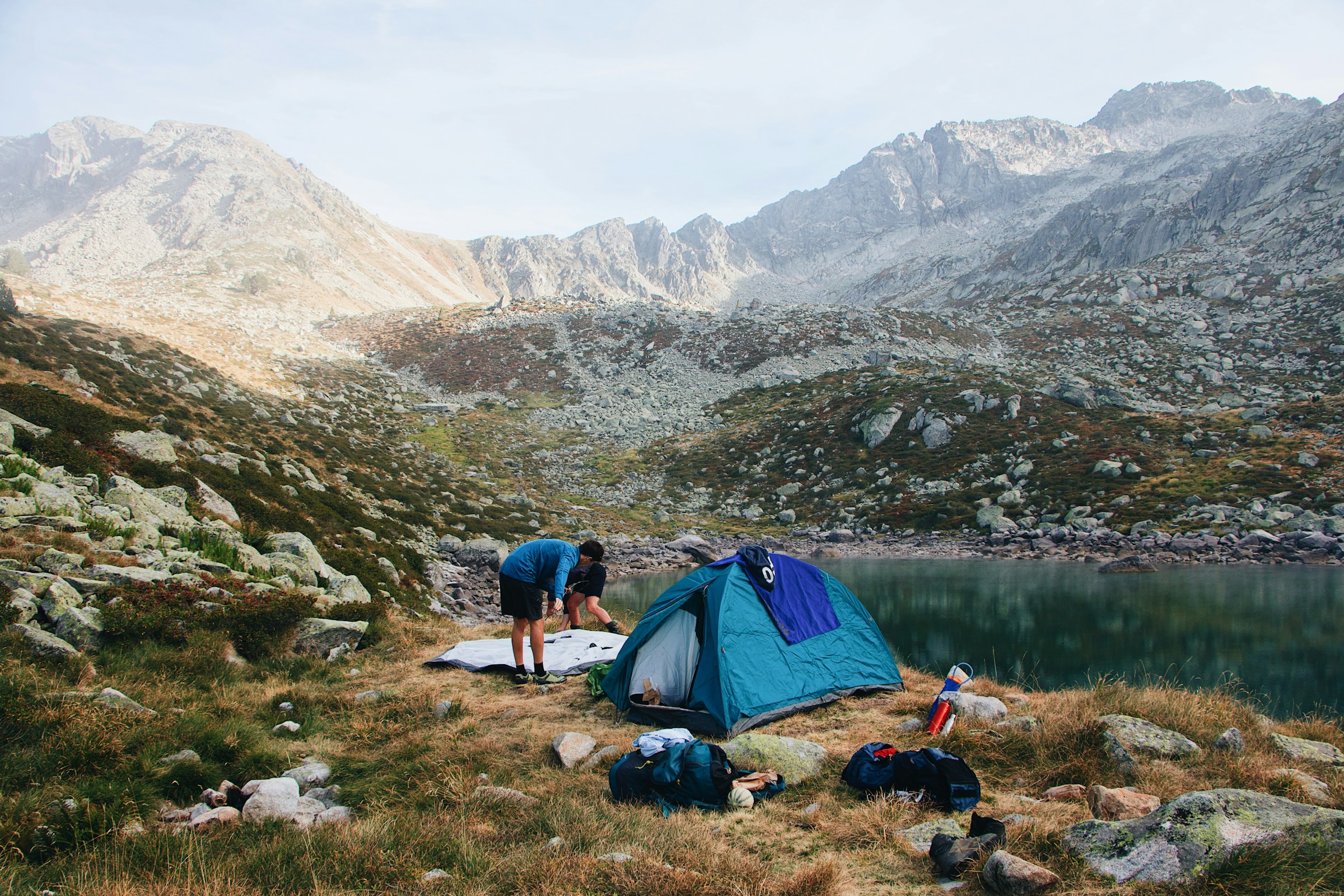How do you maintain hygiene while camping without access to facilities?

Camping is one of the most liberating experiences you can enjoy. The great outdoors, the night sky full of stars, and the soothing sounds of nature all around you. However, the thought of maintaining proper hygiene while camping, especially without access to proper facilities, might be daunting for some. It's important to remember that being in the wilderness doesn't mean you have to compromise your cleanliness. Here are some tips and tricks that will ensure you stay clean and healthy throughout your camping trip.
Packing The Right Essentials
Before you head off into the wilderness, it is crucial to pack the right essentials. Although you might be miles away from the nearest bathroom, you can still manage your hygiene effectively with the right gear.
A lire également : Are there any adult-only campsites in the UK for a quieter experience?
Firstly, pack a portable bag specifically for your hygiene products. This should include items like wipes, toilet paper, a small towel, and biodegradable soap. Make sure all these items are packed in a waterproof bag to prevent them from getting wet, which could render them useless.
A portable shower is another essential hygiene item that you should consider bringing along. These are lightweight and compact, making them easy to carry in your backpack. Portable showers are usually solar-heated, so you can enjoy a warm shower even in the middle of nowhere.
A découvrir également : How to find and prepare for themed camping events in the UK?
Lastly, don’t forget your toothbrush and toothpaste. Oral hygiene is just as important when camping, so make sure this is part of your hygiene pack.
Water Management
Water is a crucial asset when camping, and managing it wisely is essential for maintaining hygiene. You need water for drinking, cooking, washing dishes, bathing, and cleaning.
When you reach your camping site, one of the first things you should do is locate a water source if you haven't already brought enough with you. Streams, rivers, springs, and lakes can be excellent sources of water. However, the water from these sources needs to be purified before use. Boiling is one of the most effective methods of water purification, killing bacteria, viruses, and parasites that might be present.
For personal hygiene, you may need to ration your water carefully. Instead of washing dishes with clean water, consider wiping them clean with a rag or using biodegradable soap. When bathing, a quick shower or a sponge bath can suffice. Remember, the goal is to conserve as much water as possible.
Keeping Your Clothes Clean
Maintaining clean clothes while camping can be a challenge, especially during extended trips. However, there are practical ways to keep your clothes fresh and clean.
One method is to bring enough clothes for the duration of the trip. This may not be practical for longer trips, but for short camping trips, it can be the most straightforward solution.
Another approach is to wash your clothes. You can do this by packing a small amount of biodegradable laundry soap and a collapsible bucket. After washing, hang your clothes to dry. Keep in mind that damp clothes can attract bacteria, so make sure your clothes are completely dry before putting them back in your bag.
Managing Waste
Dealing with waste properly is an integral part of maintaining proper hygiene while camping. This includes both human waste and trash.
For solid waste, dig a cathole at least 6 to 8 inches deep and 200 feet away from any water source. After use, cover the cathole with the dirt you dug up. For liquid waste, simply go at least 200 feet away from your campsite and any water sources.
As for trash, practice the Leave No Trace principle. Pack out what you bring in. This means that you should bring trash bags with you and carry your trash out of the campsite when you leave.
Staying Clean and Healthy
Last but not least, personal cleanliness is crucial. Hand hygiene is especially important, as dirty hands can lead to foodborne illnesses. Regularly wash your hands with water and biodegradable soap, particularly before preparing food or eating.
Use biodegradable wipes for quick clean-ups when water is scarce. Wipes are also handy for wiping down cooking equipment and utensils.
When it comes to bathing, if you don't have access to a shower, you can make do with a sponge bath. Simply wet a sponge or cloth with water and soap and wipe your body down. Focus on cleaning the areas that sweat the most, like your armpits and groin.
Remember, staying clean and healthy while camping without access to facilities might be challenging, but it's definitely doable with the right planning and preparation. So, keep these tips in mind and enjoy your outdoor adventure without worrying about hygiene.
The Importance of Sleeping Bag Hygiene
An overlooked aspect of hygiene while camping is the cleanliness of your sleeping bag. Your sleeping bag can be a breeding ground for bacteria if not properly maintained, potentially causing skin irritations and infections. It's, therefore, necessary to keep it clean to ensure a healthy camping trip.
Before setting out for your camping trip, make sure your sleeping bag is clean and dry. Once on the camping site, try to keep your bedding area as clean as possible. Use a sleeping pad or a tarp to keep your sleeping bag off the ground and away from dirt and moisture.
After using your sleeping bag, air it out each morning to remove moisture and keep it fresh. If it gets dirty during your camping trip, you can spot clean it with a damp cloth and a little bit of biodegradable soap. Avoid getting the insulation inside the sleeping bag wet as it can take a long time to dry and can lead to mold growth.
Lastly, once you return home, make sure to thoroughly clean your sleeping bag according to its specific cleaning instructions before storing it. This will ensure it's ready to use for your next outdoor adventure and prolong its lifespan.
Personal Hygiene: Hand Sanitizer and Dry Shampoo
In the great outdoors, you may not always have access to water sources – making personal hygiene a bit tricky. However, products like hand sanitizer and dry shampoo can make it easier to stay clean while camping.
Hand sanitizer is a must-have item for your camping hygiene kit. It's a quick and effective way to clean your hands when water and soap are not readily available. Remember to use it generously and rub it into your hands until they are dry. It's especially important to sanitize your hands before preparing food, after going to the 'bathroom', and after touching items like firewood.
As for your hair, it can get greasy and unmanageable after a few days in the wilderness. This is where dry shampoo comes into play. It can help absorb the excess oil and dirt, keeping your hair clean and fresh. Dry shampoo is easy to use - simply spray it on your roots, let it sit for a few minutes, then brush it out. It's a waterless solution that's perfect for camping trips.
Conclusion: Enjoy the Great Outdoors with Good Hygiene Habits
Camping is a wonderful way to enjoy the great outdoors, but maintaining good hygiene might seem challenging. However, with the right knowledge and preparedness, it's possible to stay clean and healthy throughout your trip.
From packing essential hygiene items, managing water wisely, keeping your clothes fresh and clean, managing waste, maintaining sleeping bag cleanliness, to using hand sanitizer and dry shampoo, each measure plays a crucial role in ensuring good hygiene while camping.
Remember that staying clean during your camping trip not only makes you feel good but also keeps you safe from illnesses. It's all about being resourceful and adapting to your environment. So, go ahead, embark on your camping adventure, and enjoy the wilderness without compromising your cleanliness. With careful planning and a proactive approach to hygiene, you can fully immerse yourself in the beauty of the great outdoors without worrying about your health. After all, camping should be a refreshing and invigorating experience, not a challenge to your hygiene habits.
